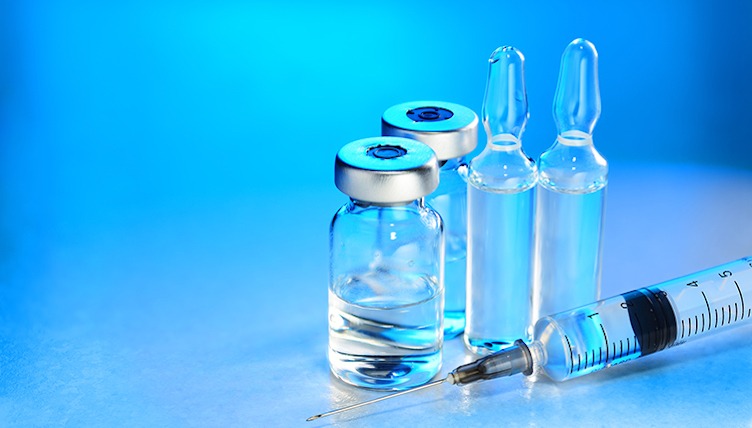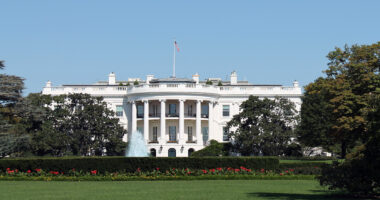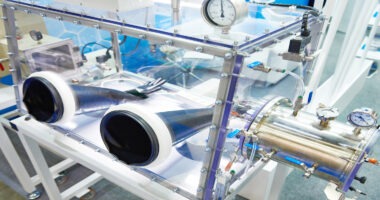The Path Behind Pfizer’s and BioNTech’s COVID-19 Vaccine
Having received emergency use authorization from the FDA for their COVID-19 vaccine, Pfizer and BioNTech reached a significant milestone in an unprecedented effort to develop a safe and effective vaccine under accelerated timelines. What was their path for achieving this, and what are the next steps?
Pfizer and BioNTech receive emergency use authorization in the US
Pfizer and BioNTech, a Mainz, Germany-based immunotherapy company, achieved a significant milestone in their quest to develop a COVID-19 vaccine last week (December 11, 2020) with the US Food and Drug Administration (FDA) providing emergency use authorization for their COVID-19 vaccine, BNT162b2, in individuals 16 years of age or older, making it the first COVID-19 vaccine authorized for emergency use in the US.
The companies have begun delivering the first doses in the US with delivery fulfillment expected to be completed in 2021.The first vaccine supplies are being distributed by the US Department of Defense (DoD) in partnership with agencies within the US Department of Health and Human Services (HHS), including the US Centers for Disease Control and Prevention (CDC), to government-designated facilities across the country. Pfizer and BioNTech had previously formed a supply pact with the US government for its COVID-19 vaccine. In July (July 2020), Pfizer and BioNTech signed an agreement with the HHS and the DoD for an initial order of 100 million doses of the vaccine for $1.95 billion with an option by the US government to acquire up to 500 million additional doses subject to authorization of the vaccine.
On a global basis, based on current projections (as of December 11, 2020), Pfizer’s and BioNTech’s combined manufacturing network has the potential to supply up to 50 million vaccine doses in 2020 and up to 1.3 billion doses by the end of 2021 (subject to manufacturing capacity and regulatory approval or authorization). Pfizer is using three of its US manufacturing sites to produce the COVID-19 vaccine: Saint Louis, Missouri; Andover, Massachusetts; and Kalamazoo, Michigan. Pfizer’s sites in Pleasant Prairie, Wisconsin and Puurs, Belgium are also being used.
The UK was the first country to authorize the vaccine for emergency use in early December (December 2020). In addition to the US and the UK, the vaccine also has been authorized for emergency use in Canada, Bahrain, Saudi Arabia, and Mexico, and global filings and reviews are ongoing. Late last month (November 2020), the companies submitted an application for conditional marketing authorization with the European Medicines Agency (EMA). The EMA’s scientific committee for human medicines is scheduled to conclude its assessment for conditional marketing authorization by December 21, 2020.
After gaining emergency use authorization in the US, Pfizer and BioNTech say they will gather additional data and prepare to file a planned biologics license application for the vaccine with the FDA for a possible full regulatory approval in 2021.
The path to a COVID-19 vaccine
Pfizer’s path to a COVID-19 vaccine has been a 10-month journey that began in March (March 2020), when Pfizer Chairman and CEO Albert Bourla outlined a five-point plan on how Pfizer would apply its resources and expertise with the pharma ecosystem—other pharma companies, governments, research institutes, and other stakeholders—in the battle against COVID-19 and further specified the focus of internal projects within the company (see Table I at end of article). Pfizer soon after announced that it had agreed to a letter of intent for the co-development and distribution (excluding China) of a potential mRNA-based coronavirus vaccine with BioNTech, a Mainz, Germany-based immunotherapy company. The companies started collaborating immediately as they worked to finalize the agreement. In early April (April 2020), Pfizer finalized that agreement to develop BioNTech’s mRNA COVID-19 vaccine program in a deal worth up to $748 million ($185 million upfront, inclusive of an $113-million equity stake in BioNTech by Pfizer, and future milestone payments of up to $563 million). The new collaboration to develop a COVID-19 vaccine built on a previous partnership between the companies. In 2018, the companies partnered in a multi‐year research and development collaboration to develop mRNA‐based vaccines for the prevention of influenza in a $425-million deal ($120-million upfront and $305 million in milestones). With the new COVID-19 pact in place, the companies begin investigating four vaccine candidates in their BNT162 mRNA-based vaccine program.
A key clinical milestone occurred in late April/early May (April/May 2020), when the companies reported the dosing of the first participants in Phase I/II studies in Germany and the US. Later in July (July 2020), the companies announced early positive data from the studies, and two of the companies’ four investigational vaccine candidates from their BNT162 mRNA-based COVID-19 vaccine program (BNT162b1 and BNT162b2) received fast-track designation from the FDA. In late July, the companies, in consultation with regulatory authorities, selected one of those vaccine candidates, BNT162b2, to advance to Phase II/III studies, and later in August (August 2020) reported positive early interim data (see Table I at the end of the article).
In November (November 2020), the companies reported positive efficacy data from an interim analysis of their lead vaccine candidate (BNT162b2) that showed that the vaccine was found to be more than 90% effective in preventing COVID-19. Later that month, the companies reported that the vaccine met all of the study’s primary efficacy endpoints (observed efficacy in adults over 65 years of age was over 94%), and the safety data milestone required by the FDA for emergency use authorization was achieved. The companies filed for emergency use authorization to the FDA in late November and received emergency use authorization by the FDA on December 11, 2020 (see Table I below).
| Table I: Highlights of Pfizer’s and BioNTech’s Timeline to a COVID-19 Vaccine |
| March 13, 2020: Pfizer Chairman and CEO Albert Bourla outlines a five-point plan on how Pfizer will apply its resources and expertise with other pharma companies, governments, research institutes, and other stakeholders in the battle against COVID-19. |
| March 17, 2020: Pfizer and BioNTech agree to a letter of intent for the co-development and distribution (excluding China) of a potential mRNA-based coronavirus vaccine. The companies start collaborating immediately as they finalize the agreement. |
| April 9, 2020: Pfizer provides details on how it is advancing both drug and vaccine development against COVID-19. |
| April 9, 2020: Pfizer finalizes agreement to develop BioNTech’s mRNA COVID-19 vaccine program in a deal worth up to $748 million. Companies will investigate four vaccine candidates in their BNT162 mRNA-based vaccine program. |
| April 29, 2020: Pfizer and BioNTech report that the first cohort of a Phase I/II clinical trial in Germany was dosed. |
| May 5, 2020: Pfizer and BioNTech report that the first participants of a Phase I/II clinical trial in the US were dosed. |
| July 1, 2020: Pfizer and BioNTech report early positive preliminary data from ongoing Phase I/II studies, which will enable selection of a lead candidate and dose level for a large, global Phase IIb/III safety and efficacy study. |
| July 13, 2020: Two of the companies’ four investigational vaccine candidates from their BNT162 mRNA-based COVID-19 vaccine program (BNT162b1 and BNT162b2) receive fast-track designation from the FDA. |
| July 20, 2020: Pfizer and BioNTech announce early positive data from a Phase I/II clinical study in Germany, including first positive T cell response data. |
| July 27, 2020: Pfizer and BioNTech, in consultation with the FDA and other global regulators, select their BNT162b2 vaccine candidate to advance to Phase II/III studies of up to 30,000 participants, aged 18–85 years, at approximately 120 sites globally. |
| August 20, 2020: Pfizer and BioNTech report positive early data on their lead COVID-19 vaccine candidate, BNT162b2. |
| September 12, 2020: Pfizer and BioNTech expand the enrollment of their Phase III COVID-19 vaccine trial to up to approximately 44,000 participants to allow for the enrollment of new patient populations. |
| October 6, 2020: Pfizer and BioNTech initiate rolling submission of their lead vaccine candidate, BNT162b2, to the European Medicines Agency. |
| November 9, 2020: Pfizer and BioNTech report that their lead vaccine candidate (BNT162b2) was found to be more than 90% effective in preventing COVID-19 in the first interim efficacy analysis from their Phase III study. |
| November 18, 2020: Pfizer and BioNTech report the final efficacy analysis in their ongoing Phase III study of their COVID-19 vaccine candidate, BNT162b2, met all of the study’s primary efficacy endpoints (observed efficacy in adults over 65 years of age was over 94%), and the safety data milestone required by the FDA for emergency use authorization was achieved. |
| November 18, 2020: Based on current projections, Pfizer and BioNTech report they plan to supply 50 million doses of their vaccine in 2020 and up to 1.3 billion doses by the end of 2021. |
| November 20, 2020: Pfizer and BioNTech submit request for emergency use authorization to the FDA. Rolling review continues with other regulatory agencies globally, including the European Medicines Agency and the UK’s Medicines & Healthcare Products Regulatory Agency. |
| December 2, 2020: The UK’s Medicines & Healthcare Products Regulatory Agency grants a temporary authorization for emergency use for Pfizer’s and BioNTech’s mRNA vaccine (BNT162b2) against COVID-19, making it the first COVID-19 vaccine to receive authorization for emergency use. |
| December 10, 2020: A FDA advisory committee recommends emergency use authorization for Pfizer’s and BioNTech’s COVID-19 vaccine (BNT162b2). |
| December 11, 2020: The FDA grants emergency use authorization for Pfizer’s and BioNTech’s COVID-19 vaccine (BNT162b2). Pfizer and BioNTech report that they will gather additional data and prepare to file a planned biologics license application with the FDA for a possible full regulatory approval in 2021. |
| December 14, 2020: To date; six countries (the US, the UK, Canada, Mexico, Bahrain, and Saudi Arabia) have approved Pfizer’s and BioNTech’s COVID-19 vaccine for emergency use. A conditional marketing authorization is under review by the European Medicines Agency with an assessment expected on December 21, 2020. |
|
Source: Pfizer and BioNTech. |
.





